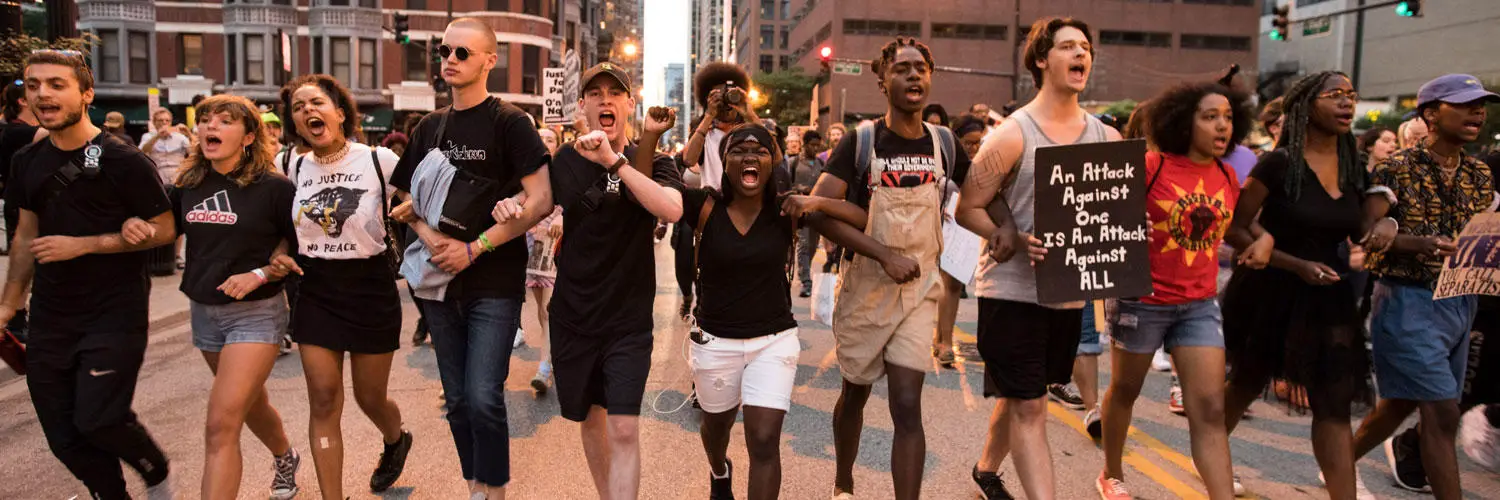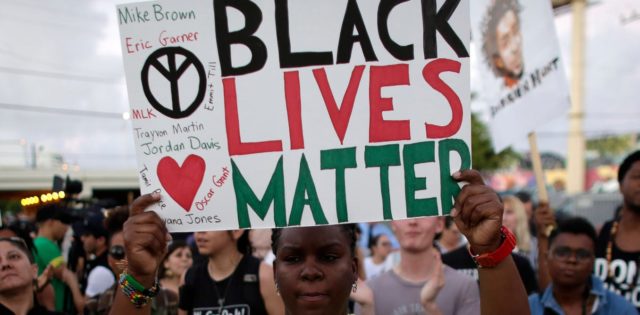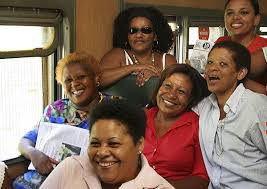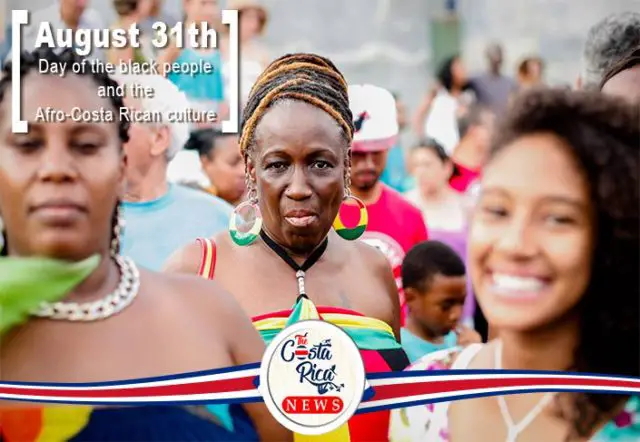Culture, religion, nationality, language or customs, do not determine a race … Many people worldwide understand it and conduct struggles to state this “truth”. Many others only know how to exclude, thinking that excluding will make them better. Will this be the ultimate battle for a better society? The Costa Rica News brings you a special report about racism in two cultures: North America and Latin America.

The renowned Martin Lutter King Jr said, “We have learned to fly like birds, to swim like fish; but we have not learned the simple art of living as brothers”. Known as Michael King Jr, he was an American pastor of the Baptist Church and an activist who, incidentally, spearheaded social advancement in the United States at the leader of the Civil Rights Movement for Afro-descendants.
North America.
Racism in the United States seems to have no end.
Racism in the United States has been gaining strength for many years, by Americans of Anglo-Saxon origin (a term that comes from the German population, northern Germany, Holland, Great Britain). It has manifested and continues to be given to minority groups. Previously, Jim Crow laws (state and local laws in the United States, promulgated by white state legislatures) emerged, such laws advocated racial segregation (separation of different groups in daily life, whether in restaurants, bathrooms, schools, hotels, casinos, among others places), and in general, all public facilities, under the slogan “separate but equal”.
Racial segregation may be dictated by law or may exist through social norms. Hispanic and Latin Americans, are those who have always suffered racial discrimination actions, who are they? Americans of Latin American descent categorized as Hispanic, come from a wide variety of racial and ethnic backgrounds. In the United States there have been numerous struggles against racism, we can mention Linda Brown (who died in 2018), many specialists mention that her name is associated with the end of legal segregation in schools, 69 years ago, when she carried out one of the milestones moments against racial discrimination in the United States: Going to school represented an odyssey for Linda Brown, a black woman born in Kansas in the early ’40s, she had to walk long stretches to study, “When winter came, the walk was very cold, I remember walking with tears freezing on my face because I was crying”, she recalls. As part of a protest campaign promoted by the National Association for the Advancement of People of Color (NAACP), her father, Oliver, wanted to enroll her in an institute that was “only for whites.” Twelve more black families followed suit for their children and all ran into rejection. It was the year 1950. Following these facts, the NAACP filed the Brown lawsuit against the Education Portfolio. In a historic 1954 ruling, for
unanimous decision (9-0), the court dictated the unconstitutionality of school segregation.
Martin Luther King Jr was also a milestone figure in the struggle against racism in the United States; It already has been 51 years since the murder of the man who won the Nobel Peace Prize (1964). Experts today point out that Luther King Jr has had three burials, why? – The first and massive funeral, as appropriate, seemed to attest to the triumph of King’s work. At the time of his assassination (1968) his contribution to the recognition of civil and political rights to African Americans, expressed in his writings and speeches, was valued above all.

At the moment when his legacy seemed to have obtained the maximum triumph with the election of the first African-American president, Barack Obama, at the end of the years of his double presidential term, without any positive response towards more equality, that legacy was buried, (for the second time).
The third burial of King’s legacy, which seems to take us further back than the beginning of the 60’s, is what has caused the presidency of Donald Trump, in which the weight of white supremacism is evident, as represented by the extremist and racist movement Alt-Right, commanded by Steve Bannon (American media executive, political figure and former investment banker).
Remember the Detroit Rebellion.
Approximately 52 years ago in (July), the United States (USA) experienced one of the largest and bloodiest popular revolts of the 1960s, known as the Detroit Rebellion: the five-day uprising of the oppressed classes against the prevailing racism in the country and an exclusive economic system. Stimulated by American capitalism that was not able to respond to the demands of the most oppressed sectors of the population, who faced harsh working and housing conditions.
What is said today?
Currently, the economist and editor of the New York Times, Paul Krugman, say that the speech of the President of the United States, Donald Trump, is extremely racist and anchored to the past. Paul Krugman, has made known his concern about this discourse – racist – of the current President of the United States, Donald Trump, “In his mind, it is always 1989, and that is not an accident: the way in which the United States changed in the last three decades, both for good and for bad, is incompatible with Trump-style racism”, he states.
Why 1989?
That was the year he (Trump) demanded the reinstatement of the death penalty in response to the case of the Central Park Five, Latino and black teenagers sentenced for raping a white woman who was exercising in Central Park. They were innocent (and that is why they are now known as the Five Exonerated); There sentences were overturned in 2002. Despite this, Trump has refused to apologize and does not admit he was wrong.
On the other hand, other experts remember the 50 years since the entry into effect of the International Convention on the Elimination of All Forms of Racial Discrimination (adopted and open for signature and ratification by the United Nations General Assembly in its resolution 2106 A (XX), of December 21, 1965).
Latin America.
Afro-descent and Latin America.

It can be classified as a false truth, to be able to think that “human races” exist. Theories speak of supposed sub-races within the human species. As is the case with Carl Linnaeus, an eighteenth-century Finnish scientist, who classified human beings into four races, according to their skin color, hair texture, and facial features. These were: African, European, Asian and Native American.
Where does the term Afro-descendant come from?
According to reports, the term Afro-descendant is of relatively recent use in Latin America. It was adopted for the first time in 2000, in an official statement of representatives of Latin America and the Caribbean, gathered at the Preparatory Conference of the Americas against Racism, in Santiago, Chile. Although Afro-descendant refers to people from the African diaspora, in general, in the Americas it is mainly associated with descendants of Africans brought to the continent from the sixteenth century until the end of the nineteenth century to serve as slaves in plantations, mines, factories and houses of White and mestizo elites. The term Afro-descendant groups a variety of other terms that describe local and national perceptions of race. Black, brown, mulatto, creole, among many other descriptions.
Let’s mention what happened in some countries?
In 2018, it was known that in Nicaragua,
about 88 percent of the Afro-descendant population was in the autonomous
regions of the north and south of the Caribbean coast (particularly in
the last one). The high concentration of Afro-descendants is the result of
different processes of colonial occupation of the Caribbean during the
seventeenth and eighteenth centuries. The Afro-descendant population of the
autonomous regions is not homogeneous but can be divided into three main
groups: Creoles, Garifunas, and Misquitos.
In Venezuela, according to the last census (2011), about 50 percent of Venezuelans identify themselves as Morenos, a racial category that describes a person of African descent with lighter skin pigmentation than those considered black. Moreno is a category that is often used to minimize the discriminatory implications of identifying a person as black or Afro-descendant.
The study of Afro-descendants in Latin America can be traced back to historiographic work on African slavery, beginning with Slave and Citizen (Tannenbaum 1948), which compared Latin America (usually Brazil) with the United States and often tried to relate colonial slavery regimes with post-colonial regimes of race relations.
Buenos Aires (Argentina), on August 15, the Haitian citizen Angie Lafleur, who was 9 months pregnant and about to give birth, was violently evicted from the Constitution Hotel, when the hotel manager with the security forces proceeded to carry out an eviction by force without judicial or administrative order, causing the physical and psychological damage that caused her to be taken to the Ramos Mejía Hospital.
The Dominican Republic, the triumph of the Punta Cana candidate, Clauvid Dály, as the Miss Dominican Republic for Miss Universe 2019, unleashed a great debate within the population of that country. The adverse reaction after the election is justified because she does not represent the beauty that characterizes the Dominican woman. She has even been branded as Haitian (as if being a Haitian were a sin) doubting its Dominican origin.
And Costa Rica?
Costa Rica has a fundamental role in the issue of racism. Recalling that the first article of the Political Constitution of the Republic establishing a democratic, free, independent, multi-ethnic and multicultural country.

Costa Rica is recognized as the cradle of multiple cultures and ethnicities, which have enriched and united this Central American country. The prohibition of any type of discrimination, in Costa Rica, has a constitutional basis, given that its maximum regulatory public institutions stipulate that: “Every person is equal before the law and no discrimination can be practiced contrary to human dignity”.
The National Policy for a Society Free from Racism, Racial Discrimination, and Xenophobia aims to turn Costa Rica into a society that is more respectful of people’s rights, inclusive, sensitive to socio-cultural and ethnic diversity. It has the purpose of promoting conditions to be a more inclusive and equitable Costa Rica.
A World Bank study called
“Afrodescendence in Latin America: Towards a framework of inclusion”
published in 2018, where the President of Costa Rica, Carlos Alvarado
participated, highlights that one in four Latin Americans identifies as
Afro-descendants. “They are the most invisible minority in Latin America, made
up of some 133 million people, and the majority
are concentrated in Brazil, Venezuela, Colombia, Cuba, Mexico, and
Ecuador.”
Currently, Afro-descendants constitute a highly heterogeneous population and are unevenly distributed in the region, but share a long history of displacement and exclusion. Afro-descendant households constitute a large segment of the population in several countries and tend to be younger, have more members and, according to several studies and opinion polls, have a more optimistic perception of the future.
At the beginning of the presentation of the World Bank study called “Afrodescendence in Latin America: Towards a framework of inclusion”, President Carlos Alvarado, said the following: “One of the main purposes is to eradicate poverty and promote shared prosperity, address needs of groups that have historically been excluded, if we get rid of exclusion in general, this will help to advance growth to the eradication of poverty; and what are these historically excluded groups, 50% of this population are women, we have differences in the work environment, gender violence, indigenous peoples, native peoples ”.
A while ago, at the end of August (August 31), date on which National Black (Descendants) Day is celebrated, many people among activists, politicians and visitors head to the streets, specifically from the Limón región to participate in the Grand Parade, part of that festive expression, full of music, colorful costumes, gastronomy and more, the Costa Rican and Afro-descendant journalist, Mishelle Mitchell Bernard stressed that during the rest of the year the issue of racism is forgotten, “There is a feeling of weakness in the face of discrimination and that call by the journalist, to step up the fight against stereotypes and prejudice within the Costa Rican society, apparently the declaration of the Central American country, as Multiethnic (society that is composed of ethnic groups, regardless of culture, race and history) and Pluricultural (society, where basically the different ways of acting, feeling and thinking come into contact, and when the exchange of cultures takes place, thus producing cultural miscegenation), has been a great advance, but it is insufficient due to the complex row of barriers and gaps that impose discrimination and racism against the Afro-descendant population”.
Black Day in Costa Rica.

It is worth noting that the Legislative Assembly of the Republic of Costa Rica decreed: “Black Person’s and Afro-Costa Rican Culture Day”, in response to the need to recognize the contributions of the Afro-Costa Rican sector, on equal terms with regard to economic, social and culture that have been given to other ethnic groups in the country.
Did you know that the history of the Afro-Costa Rican is full of great men and women, dreams and struggles for liberation, sorrows, glories, and hopes?
Talking about Afro-descendants is not just culture, food or clothing, it is talking about great writers like Cristian Barrett and Quince Duncan, singers like Tipí Rogers, athletes like Nery Brenes and Sharolyn Scott, painters like Ricardo Rodríguez, and even the current Vice-President of Costa Rica, economist Epsy Campbell Barr.
The Vice-President’s sister Shirley Campbelle Barr, poet and activist by nature, whose work has been translated into English, French, and Portuguese, is currently one of the most prominent poets in Latin America. Her poems have been incorporated into various popular representations in Latin America, such as radio soap operas, plays, songs, choral poetry, Argentina, Spain, Colombia, Bolivia, Dominican Republic, and Costa Rica, among others. Shirley is a reference of the Afro-descendant movements.
Current situation of Afro-descendants in Costa Rica, according to Shirley Campbell.
For Campbell, the current situation of Afro-descendants in Costa Rica, is like that in other countries in Latin America, however, Costa Rica, despite having suffered some economic and educational crises, “historically our education system has allowed us to reduce the gap, our social security system is relatively good, that is why we have had important achievements in recent times, an example of this is that we have as a vice president a black woman”.
Main difficulties facing Afro-descendants in Latin America.
The difficulties facing the Afro-descendant community in Latin America remain the same as fifty years ago, said Shirley Campbell Barr, in her opinion, some progress has been made. “One of the main problems is racism, which is reflected in all aspects of our lives, also the problem of exclusion, we have more specific cases than others, but marginalization remains the problem, another difficulty is access to the education by the Afro-descendants, access to quality health, why? Because Afro-descendants in many cases, in many of our countries, are populations that are on the periphery, in marginalized deteriorated spaces.
A recent fact has been giving a lot of discussion on the world’s websites: For years the flag waved in the South African public buildings symbolized the racial segregation system of “apartheid” (existing in that country until 1994), but from now its exhibition will be considered a “hate symbol”. The Justice of South Africa established a few days ago, that displaying the flag will unjustly constitute an act of unfair discrimination; harassment based on race and will not be protected by the constitutional right to freedom of expression.
From The Costa Rica News, we conclude: “Racism never happens, it is always present, in the feeling, acting and even expressing of certain groups that consider that exclusion is acceptable. The struggle for a collective conscience to end racism should never be exhausted, rather it should always increase its strength, towards a more just world society”.

